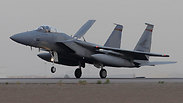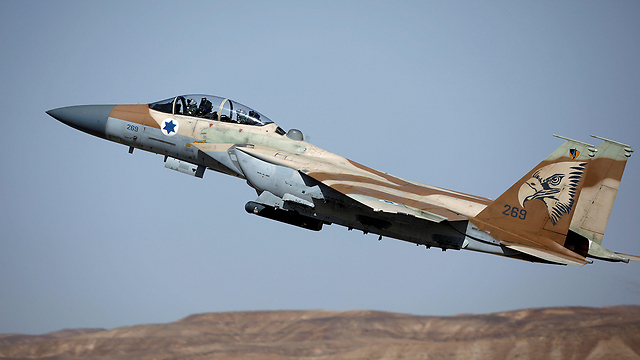
IDF asks government to approve more special operations
Already carrying out hundreds of special operations a year, IDF asks political echelon to sign off on larger scope of operations; army additionally makes plans for an influx in Haredi recruitment, following recent HCJ decision.
The IDF wants the government to increase the scope of its operations for "the war between wars," which refers to periods like the present, when security operations are being carried out while no wars are being fought.
By beeing up its special operations capabilities, the IDF hopes to be able to foil the plans of such organizations as Gaza-based terror group Hamas and Lebanon-based terror group Hezbollah, thereby preventing the next war and strengthening deterrence.
The IDF also reported that even at present, it carries out hundreds of operations every year, in a variety of ways: these include military attacks—most of them by air—in addition to intelligence attacks, cyber attacks, economic operations, political moves and some that include its cooperation with international and regional powers.
As stated, one of the objectives of these operations is to prevent Hezbollah from attaining high-precision missiles that could damage strategically significant facilities in Israel or military bases critical for winning future wars. Though Israel does not consider such a scenario as an existential threat, it does see it as a strategic concern.
Another area that the IDF would like to fortify is its ablity to respond in the north. This in light of growing tensions in the region, which led Israel to demand that the superpowers make sure to keep Iranian forces from the Golan Heights, as part of the arrangement that was reached by Russia. Specifically, Israel requested that no Iranian forces be found west of the Suwayda-Damascus road. Apparently in response to the Israeli Air Force's increased presence in the north, over the past month the IDF has noticed a great deal of nervousness within the Syrian air defense system. So far, no antiaircraft missiles have been fired at Israel, though the possibility does remain a concern.
Iranian support for Hezbollah is another cause for apprehension. Hezbollah's stipend from Iran is reported to be $800 million a year. In addition, of the approximately 22,000 fighters of the Shiite organization, about 7,000 are fighting for the fourth year now on Syrian soil, in addition to the 2,000 soldiers who have been killed in battle.
The defense establishment also noted that Hamas has been monitoring the progress of the construction of the Israeli barrier against the tunnels that connect Gaza to Israel. At present, the terror group is contemplating whether to forge ahead with their tunnel building or to use it now to carry out terrorist attacks, even at the cost of another war breaking out with Israel.
Meanwhile, on Thursday afternoon the IDF Spokesperson's Unit announced the completion of the large-scaled "Or HaDagan" military exercise in the north of the country. With the participation of tens of thousands of soldiers and a slew of aerial, navy and land vehicles and equipment, it was the largest exercise in 19 years. During Or HaDagan. "The objective of the exercise was to improve the Northern Command, the Northern Corps and its divisions' ability to fight the multi-branch operational system in the Northern Command, with an emphasis on the Lebanese front," the Spokesperson's Unit stated.
During the exercise, IDF forces were trained in joint efforts of the ground, air and sea, including battling Hezbollah forces. Defensive capabilities, fire strikes, intelligence incidences and military maneuvering were practiced in several sectors, simultaneously and over a long period of time.
Stepping up Haredi recruitment
In addition to special operations, the IDF has begun looking into ways to best impliment the High Court of Justice's recent decision to cancel the exemption of thousands of Haredi yeshiva students from military service.
The Court's decision comes in an opportune time for the IDF, as the mandatory army service time for its current soldiers is cut short, a loss that is expected to become a hindrance for the army by 2022. As a result, the IDF is interested in recruiting Haredim and is willing to invest in setting up additional frameworks to meet their needs. These include extra payment to Haredi soldiers who already have children, with monthly salaries reaching up to NIS 5,000.
According to the army, the establishment of a new ultra-Orthodox battalion, in addition to the "Netzach Yehuda" battalion, will save existing reserve units 18 rounds of reserve duty in guarding Israel's borders. This in turn could save the army tens of millions of shekels a year.
Found another ultra-Orthodox battalion could also alleviate additional brigades such as Golani or the paratroopers from border patrol, freeing them to maneuver in the next war in Lebanon or Gaza.
The IDF recruited about 3,000 young ultra-Orthodox men during 2017—200 less than the target it set for itself. That said, most of them have successfully integrated into a variety of positions within the Air Force, Home Front Command, the Technology and Logistics Division, and even in various combat units.












